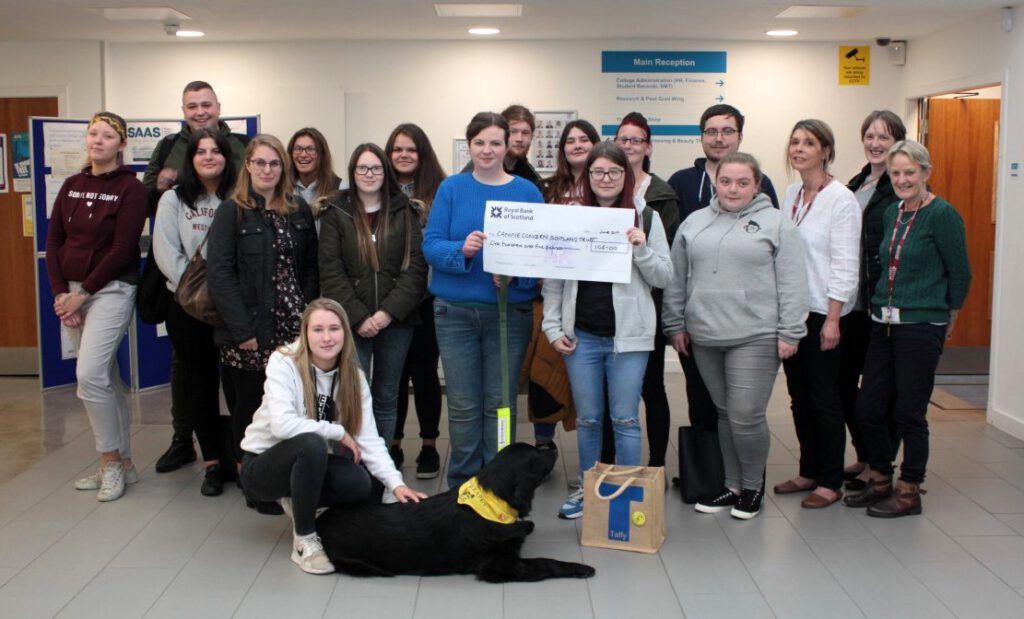Borders College students support therapet charity

A group of Borders College students have recently undertaken a project to raise awareness of the role of therapets within the health and social care sector.
National 4 Care students carried out research into the use of animals, and how this can have a positive impact on the wellbeing of people in care.
Using their knowledge of human development, they investigated the role of therapets in meeting the holistic care needs of individuals with specific health issues, including heart disease, cancer and mental health. This identified key benefits, such as reduced stress levels, lowering of blood pressure and improved general wellbeing.
Therapets are highly skilled animals which are trained to provide comfort and give affection to those who lack love and care in their lives. They are popular in care homes for the elderly, hospitals and schools across the country. Therapets help and calm people that have mental health issues, people who have additional needs, and can aid the elderly with dementia. Dogs and cats are the most popular visitors for care homes and hospitals. For mental health issues, people are mostly drawn to the dogs, llamas and miniature ponies.
As part of the project, the students organised a sponsored walk, raising £100 for the charity. They also worked with the local Canine Concern Scotland Trust volunteers to find out more about the service, including rules for therapets, and how dog owners can volunteer. By promoting the service and continuing to raise money, they hope to be able to support more volunteers and their dogs to take part.
Care lecturer Libby Noble commented:
“The students have done a great job in raising the awareness of this important charity. Their research has shown how therapets can have a positive impact on people within the community receiving care, whether physical or mental, and how this service can be tailored to each individual. The contribution they have made to this is exceptional and they hope to continue this through promoting the charity further.”











Responses